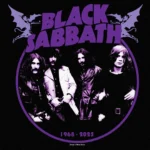How a genre rooted in jazz, soul and hip-hop found fresh life in streaming, festivals, and global stages
Neo‑soul isn’t a retro fad, it’s a revival rooted in authenticity, musical craftsmanship and emotional depth. Born in the late 20th century, this genre has resurfaced with renewed purpose, finding new audiences through intimate live shows and curated streaming platforms.
What Is neo‑soul?
Neo‑soul emerged in the 1990s as a soulful movement defined by its blend of live instrumentation, jazz-tinged harmonies, hip-hop rhythms and introspective lyricism. The term was coined in the late 1990s by Motown Records president Kedar Massenburg to describe artists such as D’Angelo, Maxwell, Erykah Badu and Lauryn Hill who modernised 1970s soul while retaining its organic warmth. The genre sits at the crossroads of R&B, jazz, funk and hip-hop, characterised by artistic integrity, mood, and emotional authenticity.
A brief evolution
While neo‑soul took root in the 1990s, its stylistic origins reach back to soul-jazz experimentation by icons like Stevie Wonder and Donny Hathaway in the 1970s. The modern movement coalesced with D’Angelo’s Brown Sugar (1995), Maxwell’s Urban Hang Suite (1996) and Erykah Badu’s Baduizm (1997).
Baduizm debuted at number two on the Billboard 200, went triple platinum, and won Best R&B Album at the 1998 Grammys. It reaffirmed the commercial viability of soulful music that prioritised depth and emotion, ushering neo‑soul from niche to mainstream. Throughout the early 2000s, artists such as Jill Scott, India.Arie and Raphael Saadiq pushed the genre further, while newer voices like Alicia Keys added eclectic influences.
A brief evolution
While neo‑soul took root in the 1990s, its stylistic origins reach back to soul-jazz experimentation by icons like Stevie Wonder and Donny Hathaway in the 1970s. The movement crystallised with releases such as:
- D’Angelo’s Brown Sugar (1995), whose sultry grooves helped define the genre’s aesthetic.
- Maxwell’s Urban Hang Suite (1996), which further blended smooth soul with jazz sensibilities.
- Erykah Badu’s Baduizm (1997), debuting at number two on the Billboard 200, reaching triple platinum status, and winning Best R&B Album at the 1998 Grammys.
Throughout the early 2000s, artists such as Jill Scott, Lauren Hill, India.Arie, and Raphael Saadiq expanded the genre’s expressive range, while Alicia Keys and Bilal introduced eclectic influences rooted in jazz and live instrumentation, often with multi-genre collaborations and orchestral production.
Erykah Badu remains the genre’s matriarch. Since Baduizm, she has released acclaimed albums including Mama’s Gun (2000) and New Amerykah (2008–2010), winning multiple Grammys and collaborating with icons including Common and The Roots.
Renewed visibility
Streaming culture and algorithm-driven playlists have granted neo‑soul renewed visibility. Spotify collections such as Neo-Soul Essentials and Chilled R&B have surfaced artists deeply rooted in soul traditions to new global audiences, nurturing slow-burn growth rather than viral peaks. Meanwhile, intimate UK venues, such as Peckham Audio and Earth Hackney, have become barometers for the genre, hosting candlelit performances with live musicians and authentic atmosphere.
2024’s emerging voices
- JoJo Moon (London) debuted with Sunlit Reverie, attracting nearly 1 million Spotify streams by mid-year. Her warm, textured production is emblematic of London’s intimate neo‑soul venues.
- Cleo Sol, part of the collective SAULT, expanded her 2018 Winter Songs EP with albums Rose in the Dark (2020) and surprise releases Heaven and Gold in 2023, reinforcing UK neo‑soul’s global standing.
- Other rising UK names include Jaz Karis, Pip Millett and Gaidaa, each building neo‑soul’s presence in the British scene.
- In the United States, H.E.R., Anderson .Paak, SZA, Daniel Caesar, Ari Lennox and SiR continue evolving neo‑soul into hip-hop and contemporary R&B spaces.
- Internationally, the genre has global voices in Jordan Rakei (New Zealand) and Hiatus Kaiyote (Australia), bringing experimental and jazz elements to the form.
The next chapter
Neo‑soul’s quiet resurgence looks primed for sustained growth and deeper integration into the mainstream. Expect deeper collaborations across indie, electronic, hip-hop, and jazz fields, a broader presence in festival line-ups, and steady streaming uptick from both playlist exposure and live performances, plus larger venues and new audiences for artists such as JoJo Moon and Cleo Sol.
Here comes the next beautifully timeless chapter.





